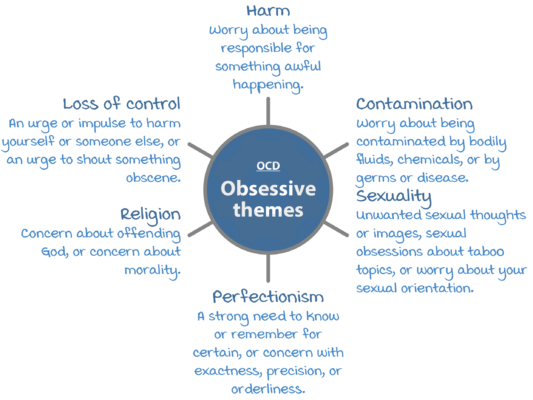Introduction
In the realm of mental health, it’s essential to recognize and understand various disorders that affect individuals. One such condition is obsessive male gender disorder, which can have a profound impact on a person’s life. This article aims to provide a comprehensive guide to this disorder, covering its definition, symptoms, causes, and effective coping strategies. So, let’s dive into the world of obsessive male gender disorder and gain insights into this often-misunderstood condition.
Obsessive Male Gender Disorder: What Is It?
Obsessive male gender disorder, often abbreviated as OMGD, is a mental health condition characterized by persistent and distressing thoughts and behaviors related to one’s gender identity and masculinity. People with this disorder may experience an overwhelming obsession with conforming to societal stereotypes and expectations associated with their gender. This intense preoccupation can lead to a range of emotional and psychological challenges.
Symptoms of OMGD
Living with obsessive male gender disorder can be challenging, and recognizing its symptoms is the first step toward seeking help. Here are some common signs and symptoms associated with OMGD:
- Constant Worry About Masculinity: Individuals with OMGD may find themselves constantly preoccupied with thoughts about being masculine enough. They may worry excessively about their appearance, interests, and behaviors, fearing that they don’t align with societal expectations of masculinity.
- Avoidance of Non-Masculine Activities: People with OMGD may actively avoid activities or interests they perceive as non-masculine. This can limit their personal growth and hinder them from exploring diverse aspects of themselves.
- Low Self-Esteem: OMGD often leads to low self-esteem, as individuals may feel inadequate or unworthy due to their perceived failure to meet gender-related standards.
- Anxiety and Depression: The constant pressure to conform to gender norms can contribute to anxiety and depression. Individuals may experience intense feelings of sadness and anxiety as a result of their disorder.
- Social Isolation: Some individuals with OMGD may withdraw from social interactions due to their insecurities about their gender identity. This isolation can exacerbate feelings of loneliness and despair.
What Causes OMGD?
The exact cause of obsessive male gender disorder is not well understood, but it is believed to result from a combination of genetic, environmental, and societal factors. Here are some potential contributing factors:
- Genetics: There may be a genetic predisposition to developing OMGD, as it often runs in families.
- Traumatic Experiences: Trauma or negative experiences related to gender identity or masculinity can trigger OMGD.
- Social and Cultural Influences: Societal expectations and cultural norms that enforce rigid gender roles can contribute to the development of OMGD.
-

Obsessive Male Gender Disorder: Understanding, Coping, and FAQs
Coping with OMGD
Coping with obsessive male gender disorder is a complex process, but it is possible with the right support and strategies. Here are some effective ways to manage OMGD:
- Seek Professional Help: Consulting a mental health professional, such as a therapist or counselor, is crucial. They can provide therapy and support tailored to your needs.
- Support Groups: Joining support groups or communities of individuals facing similar challenges can offer a sense of belonging and understanding.
- Self-Acceptance: Learning to accept and embrace oneself, regardless of societal norms, is a vital step in coping with OMGD.
- Challenge Negative Thoughts: Cognitive-behavioral therapy (CBT) can help individuals identify and challenge negative thought patterns related to their gender identity.
- Build a Support System: Surrounding oneself with supportive friends and family members can make a significant difference in managing OMGD.
FAQs
Q: Is OMGD a common disorder?
A: OMGD is relatively rare, but it can have a significant impact on those who experience it.
Q: Can OMGD be treated effectively?
A: Yes, with the right treatment and support, individuals with OMGD can lead fulfilling lives.
Q: Are there medications for OMGD?
A: There are no specific medications for OMGD, but therapy and counseling can be highly effective.
Q: Can OMGD affect people of all ages?
A: OMGD can affect individuals of any age, although it often becomes apparent in adolescence or early adulthood.
Q: Is OMGD the same as gender dysphoria?
A: No, OMGD is distinct from gender dysphoria. While both involve gender-related concerns, the nature of the concerns and their impact differ.
Q: What should I do if I suspect someone I know has OMGD?
A: If you suspect someone you know is struggling with OMGD, approach them with empathy and encourage them to seek professional help.
Conclusion
Obsessive male gender disorder is a complex condition that can significantly affect an individual’s life. However, with understanding, support, and appropriate treatment, those living with OMGD can learn to manage their symptoms and lead fulfilling lives. Remember, seeking help is a sign of strength, and there is hope for a brighter future.









